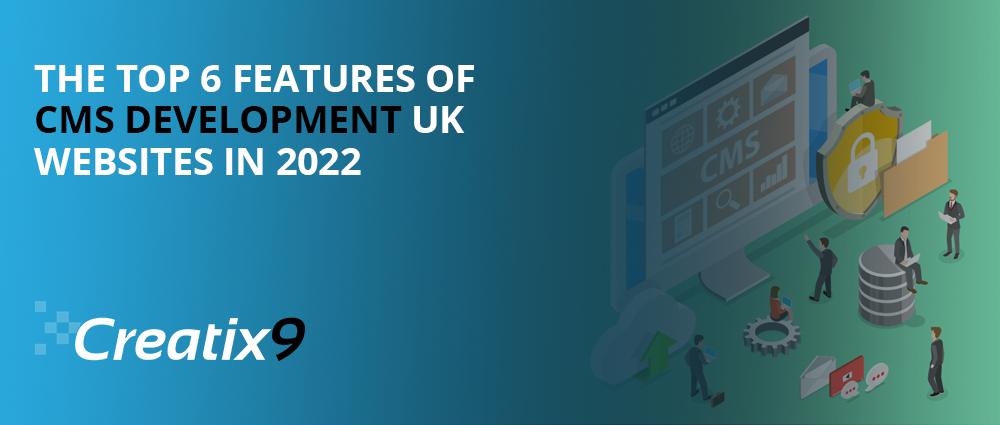
The rapid increase in online businesses or ecommerce websites has changed the business landscape, digitising significant purchases, information, and services. Having an online presence with cms development uk has made companies swell recognised worldwide, letting customers purchase the goods and services from anywhere around the world. It has led to customers opting for easy shopping, saving time and energy. Customers no longer have to wait in long queues. Instead, they are seen utilising their precious time in doing productive work. All the companies from small to large scale have their own websites that keep the users engaged.
Since the websites have increased dramatically, new businesses strive to build a robust website that is easy to manage. Hence, they hire a web development agency that builds and maintains the company’s website while providing enhanced user experiences with the help of quality content and marketing. Though choosing the agency may look like an easy task, it is challenging. It becomes crucial to select a reliable agency with a team of experts specialised in software development services that guides and builds unique websites integrated with CMS. The CMS makes the website rank higher without using codes. A successful website is usually an outcome of robust CMS software.
What is CMS Development UK?

CMS stands for a content management system that is a software or platform that builds websites and creates engaging content for the internet. Unlike other software, it enables businesses to create a website without coding, which means anyone with little or no expertise can quickly develop a highly functional website. It has mitigated the traditional web development methods that require HTML knowledge to code the website or publish the content. The CMS slows users to easily log into the website dashboards and use the user-friendly interface to design web pages, customise the styles or add content. After this, the CMS does the rest of the work by coding the website. The cms development uk platform leverages businesses to write blogs, create an ecommerce store, develop websites, design portfolios, etc. Furthermore, many types of content management systems facilitate organisations with few of the incredible features. One of the most used CMS platforms is WordPress, widely used by companies globally, leveraging businesses with advanced features.
5 Features of CMS Platforms
-
Dashboard

The website dashboards are the main feature of any website with a simple interface enables companies to personalise their websites by opting for different designs, styles, colours, fonts, etc. Usually, it is known as the backend or admin area that showcases the key elements of the website. It may include a welcome message, an activity log, reviews, or just a website summary. Companies usually hire a web development agency to help build interactive websites with simple and easy-to-use dashboards.
-
Customise Themes

The difference in the types of industries has led to companies having their own set of features, procedures, rules, mindset, etc., making it essential to design their products or services accordingly. Therefore, even the websites designed for businesses differ in their appearance and what they have to offer. The CMS here plays a vital role in helping enterprises customise the look of their websites according to their presence of industry standards. Hence, WordPress offers dozens of templates and themes to businesses. These built-in templates enable companies to change the website’s colours, layout, fonts, and other design features. Moreover, it offers thousands of free themes, but firms can also choose premium themes to give the website a more professional look.
-
Plugins

The best websites are customisable, and the CMS helps companies add unique features to the website by adding plugins and extensions. These plugins act like apps on a mobile phone. Since they are easy to install, websites can improve their functions and features while elevating the overall look. Though every cms development uk platform offers a wide range of plugins, WordPress tops them all with over 57,000 plugins, adding new features like social media integration or contact form. Hence, companies no longer have to build new websites to add more value or offer additional services. They can add plugins and extensions to upgrade the website performance look within a fraction of seconds.
-
Content Editor

One of the most crucial factors that increase the importance of content management platforms has to be the ability to create, edit and publish the content on the web pages. They are usually referred to as WYSIWYG, which means ‘what you see is what you get.’ When a company starts with an ecommerce web development process, it has an idea about how the website will look in the end. Hence, while editing the text, the company imagines the web site’s overall look instead of focusing on coding. Creating interactive content is a piece of art mastered by a few that takes time and effort. Further, it allows companies to add images or other media files to the website to make it more attractive, bringing more audience to the page. Not to forget, this should include the proper usage of SEO keywords that help in ranking the website higher on the search engine.
-
User Engagement

When developing a website, the CMS permits the audience to take an active part in publishing their work on the business website, making it available for the audience to gain knowledge about specific products, topics, or services. Moreover, it allows companies to assign various user roles to control what areas they can access without permission.
The CMS development UK is for non-techy users that have little or no knowledge about website development. It helps such businesses or individuals to create their websites, add content and manage their online presence effectively with minimum resources. Companies searching for hassle-free and convenient website content management systems usually opt for such platforms, letting them easily customise the websites at an affordable price. When focusing on the best CMS platform, there is no specific answer. It depends on the business’s industry and its requirements, each opting for different features and functions. Hence, saying WordPress is the best website won’t be fair though more than 38% use WordPress for their development process.

